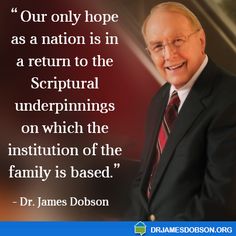I wanted to share Jim Collins’s summary of his 5 stages of decline. These stages can cause both personal and professional decline and must be recognized before its too late. Unfortunately, to paraphrase Socrates, the examined life is extremely rare and most people do not take the time to study the scoreboard of life. Here is your opportunity to study Collin’s list and see which area you can improve.
LIFE Leadership is about personal and professional development to launch a leadership revolution. Are you ready for the revolution?
Sincerely,
Our research indicates that organizational decline is largely self-inflicted, and recovery largely within our own control. So long as you never fall all the way to Stage 5, you can rebuild.
While a full exploration of the five stages is beyond the scope of this excerpt, here is a brief summary:
STAGE 1: HUBRIS BORN OF SUCCESS
Great enterprises can become insulated by success; accumulated momentum can carry an enterprise forward for a while, even if its leaders make poor decisions or lose discipline. Stage 1 kicks in when people become arrogant, regarding success virtually as an entitlement, and they lose sight of the true underlying factors that created success in the first place. When the rhetoric of success (“We’re successful because we do these specific things”) replaces penetrating understanding and insight (“We’re successful because we understand why we do these specific things and under what conditions they would no longer work”), decline will very likely follow. Luck and chance play a role in many successful outcomes, and those who fail to acknowledge the role luck may have played in their success—and thereby overestimate their own merit and capabilities—have succumbed to hubris.
The best leaders we’ve studied never presume they’ve reached ultimate understanding of all the factors that brought them success. For one thing, they retain a somewhat irrational fear that perhaps their success stems in large part from fortuitous circumstance. Suppose you discount your own success (“We might have been just really lucky/were in the right place at the right time/have been living off momentum/have been operating without serious competition”) and thereby worry incessantly about how to make yourself stronger and better-positioned for the day your good luck runs out. What’s the downside if you’re wrong? Minimal: If you’re wrong, you’ll just be that much stronger by virtue of your disciplined approach. But suppose instead you succumb to hubris and attribute success to your own superior qualities (“We deserve success because we’re so good/so smart/so innovative/so amazing”). What’s the downside if you’re wrong? Significant. You just might find yourself surprised and unprepared when you wake up to discover your vulnerabilities too late.
STAGE 2: UNDISCIPLINED PURSUIT OF MORE
Hubris from Stage 1 (“We’re so great, we can do anything!”) leads right to Stage 2, the Undisciplined Pursuit of More—more scale, more growth, more acclaim, more of whatever those in power see as “success.” Companies in Stage 2 stray from the disciplined creativity that led them to greatness in the first place, making undisciplined leaps into areas where they cannot be great or growing faster than they can achieve with excellence—or both. When an organization grows beyond its ability to fill its key seats with the right people, it has set itself up for a fall. Although complacency and resistance to change remain dangers to any successful enterprise, overreaching better captures how the mighty fall.
Discontinuous leaps into areas in which you have no burning passion is undisciplined. Taking action inconsistent with your core values is undisciplined. Investing heavily in new arenas where you cannot attain distinctive capability, better than your competitors, is undisciplined. Launching headlong into activities that do not fit with your economic or resource engine is undisciplined. Addiction to scale is undisciplined. To neglect your core business while you leap after exciting new adventures is undisciplined. To use the organization primarily as a vehicle to increase your own personal success—more wealth, more fame, more power—at the expense of its long-term success is undisciplined. To compromise your values or lose sight of your core purpose in pursuit of growth and expansion is undisciplined.
STAGE 3: DENIAL OF RISK AND PERIL
As companies move into Stage 3, internal warning signs begin to mount, yet external results remain strong enough to “explain away” disturbing data or to suggest that the difficulties are “temporary” or “cyclic” or “not that bad,” and “nothing is fundamentally wrong.” In Stage 3, leaders discount negative data, amplify positive data, and put a positive spin on ambiguous data. Those in power start to blame external factors for setbacks rather than accept responsibility. The vigorous, fact-based dialogue that characterizes high-performance teams dwindles or disappears altogether. When those in power begin to imperil the enterprise by taking outsize risks and acting in a way that denies the consequences of those risks, they are headed straight for Stage 4.
Bill Gore, founder of W.L. Gore & Associates, articulated a helpful concept for decision-making and risk-taking, what he called the “waterline” principle. Think of being on a ship, and imagine that any decision gone bad will blow a hole in the side of the ship. If you blow a hole above the waterline (where the ship won’t take on water and possibly sink), you can patch the hole, learn from the experience, and sail on. But if you blow a hole below the waterline, you can find yourself facing gushers of water pouring in, pulling you toward the ocean floor. And if it’s a big enough hole, you might go down really fast, just like some of the financial firm catastrophes of 2008. To be clear, great enterprises do make big bets, but they avoid big bets that could blow holes below the waterline.
STAGE 4: GRASPING FOR SALVATION
The cumulative peril and/or risks gone bad of Stage 3 assert themselves, throwing the enterprise into a sharp decline visible to all. The critical question is: How does its leadership respond? By lurching for a quick salvation or by getting back to the disciplines that brought about greatness in the first place? Those who grasp for salvation have fallen into Stage 4. Common “saviors” include a charismatic visionary leader, a bold but untested strategy, a radical transformation, a dramatic cultural revolution, a hoped-for blockbuster product, a “game-changing” acquisition, or any number of other silver-bullet solutions. Initial results from taking dramatic action may appear positive, but they do not last.
When we find ourselves in trouble, when we find ourselves on the cusp of falling, our survival instinct and our fear can prompt lurching—reactive behavior absolutely contrary to survival. The very moment when we need to take calm, deliberate action, we run the risk of doing the exact opposite and bringing about the very outcomes we most fear. By grasping about in fearful, frantic reaction, late Stage 4 companies accelerate their own demise. Of course, their leaders can later claim: “But look at everything we did. We changed everything. We tried everything we could think of. We fired every shot we had, and we still fell. You can’t blame us for not trying.” They fail to see that leaders atop companies in the late stages of decline need to get back to a calm, clear-headed, and focused approach. If you want to reverse decline, be rigorous about what not to do.
STAGE 5: CAPITULATION TO IRRELEVANCE OR DEATH
The longer a company remains in Stage 4, repeatedly grasping for silver bullets, the more likely it will spiral downward. In Stage 5, accumulated setbacks and expensive false starts erode financial strength and individual spirit to such an extent that leaders abandon all hope of building a great future. In some cases the company’s leader just sells out; in other cases the institution atrophies into utter insignificance; and in the most extreme cases the enterprise simply dies outright.
The point of the struggle is not just to survive, but to build an enterprise that makes such a distinctive impact on the world it touches (and does so with such superior performance) that it would leave a gaping hole—a hole that could not be easily filled by any other institution—if it ceased to exist. To accomplish this requires leaders who retain faith that they can find a way to prevail in pursuit of a cause larger than mere survival (and larger than themselves) while also maintaining the stoic will needed to take whatever actions must be taken, however excruciating, for the sake of that cause.












